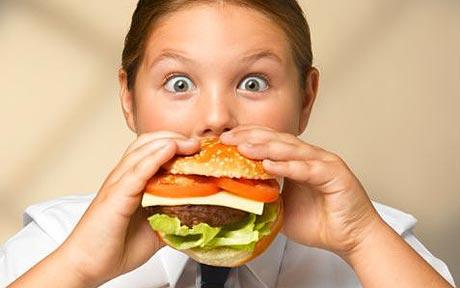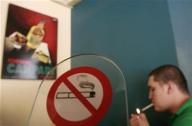
Junk food makes you eat more
It triggers messages that are sent to the body’s cells, warning them to ignore appetite-suppressing hormones that regulate our weight.
The effect can last for a few days sabotaging efforts to get back to a healthy diet afterwards, the study found.
The study shows for the first time how particular products can create a vicious cycle of food bingeing.
Lead author Dr Deborah Clegg of the study by UT Southwestern Medical Centre in Dallas, said: “Normally, our body is primed to say when we have had enough, but that does not always happen when we are eating something good.
“What we have shown is that someone’s entire brain chemistry can change in a very short period of time.
“Our findings suggest that when you eat something high in fat, your brain gets ‘hit’ with the fatty acids, and you become resistant to insulin and leptin. Since you are not being told by the brain to stop eating, you overeat.”
The hormone leptin is produced in the brain and suppresses hunger while insulin is produced by the pancreas and regulates blood sugar levels.
Although the study was performed on rats and mice the scientists said their results reinforced common dietary recommendations to limit saturated fat intake as “it causes you to eat more.”
The animals received the same amount of calories in one of three forms of fat – palmitic acid, monounsaturated fatty acid or unsaturated oleic acid which is found in olive and grapeseed oils.
The biggest affect on leptin and insulin was caused by molecules from palmitic acid which is found in beef, butter, cheese and milk.
Dr Clegg, whose findings are published in The Journal of Clinical Investigation, said: “The action was very specific to palmitic acid, which is very high in foods that are rich in saturated fat.
She said it may explain why many people who overindulge on a Friday or Saturday say they are hungrier than normal on Monday.
The findings may also have implications for diabetes research because although scientists have known a high-fat diet can cause insulin resistance, little has been known about the mechanism behind it or whether specific types of fat are more dangerous.
Dr Clegg said: “We found the palmitic acid specifically reduced the ability of leptin and insulin to activate their intracellular signalling cascades. The oleic fat did not do this.”
She said the other key finding is this mechanism is triggered in the brain – long before there might be signs of obesity anywhere else in the body.
Dr Clegg said the next step is to determine how long it takes to reverse completely the effects of short-term exposure to high-fat food.
Junk food, Junk food Health, Junk food Health Latest, Junk food Health Information, Junk food Health information, Junk foodHealth Photo,Exercising for Weight Health photo, Junk food Health Latest, Junk foodHealth latest, Exercising for Weight Health Story, Healthy Minnesota Health story, Junk food Video, Junk food video, Junk food Health History, Junk food Health history, Junk foodover Picture, history, Junk food Asia, Healthy Minnesota asia, Junk food Gallery, Exercising for Weight gallery, Junk food Photo Gallery, Healthy Minnesota photo gallery, Junk food Picture, Junk food picture, Junk food Web, Malaysia Health, web Health, web Health picture, video photo, video surgery, gallery, laparoscopy, virus, flu, drug, video, Health Health, calories, photo, nutrition, health video, symptoms, cancer, medical, beating, diet, physical, Training, organic, gym, blister, exercise, weightloss, surgery, spiritual, eating, tips, skin, operation, bf1




